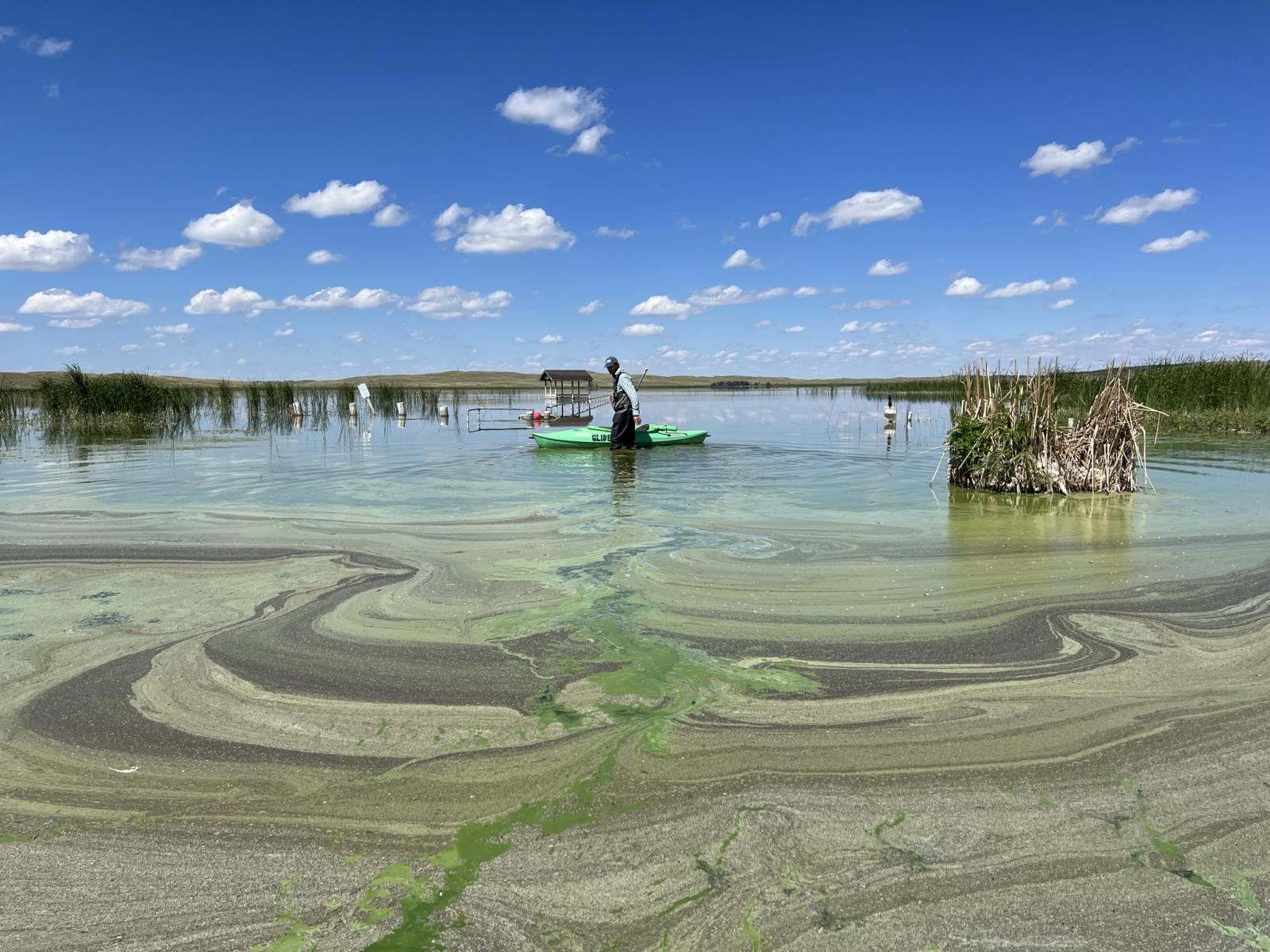Course List: Field Animal Behavior
LIMNOLOGY
FULFILLS:
NRES 498/898, 4 credit hours
PREREQUISITES:
BIOS 101/101L or LIFE 120/120L or PLAS 131/132
and
CHEM 105 A/L or CHEM 109/109L
ABOUT THE INSTRUCTOR:
Carly Olson: I am a postdoctoral research associate working with Dr. Jessica Corman in Nebraska's Ecosystem Stoicheiometry Lab. I hail from Minnesota but received my BS from the University of Wisconsin-La Crosse and my PhD from the University of Notre Dame. My love for water has been shaped by each of these experiences. Lincoln is the fourth stop on my circular tour of the Midwest and I’m looking forward to learning and teaching about Nebraska’s freshwater resources.
In my research, I aim to connect across ecological scale, from organisms to ecosystems, to enhance our understanding of aquatic ecosystem structure and function. To do this, I use a combination of field observations, manipulative experiments, and process modeling to develop questions and test hypotheses regarding patterns in lake metabolism. Lake metabolism is the whole-ecosystem balance of primary productivity and respiration, and this balance has major implications for aquatic ecosystem services such as water quality, carbon sequestration, and freshwater fisheries. Much of my research has focused on linking the limitation-status of phytoplankton to ecosystem-scale processes such as lake metabolism and carbon sequestration. All of my research is conducted within the context of global change drivers such as eutrophication and climate change.
COURSE DESCRIPTION:
Limnology is the study of the biological, chemical, and physical components of inland aquatic ecosystems. Water is a vital resource that provides many ecosystem services. However, these services are threatened by anthropogenic impacts and solving these threats requires a diverse and interdisciplinary approach. This is a field-based course that will be taught at the Cedar Point Biological Station near Ogallala, Nebraska. The course will provide an overview of the fundamentals of limnology with an emphasis on research approaches in limnology and ecosystem science.
You will gain hands-on experience in a variety of limnological field sampling techniques, including how to sample water, sediment, and/or phytoplankton and zooplankton while aboard water craft, and basic laboratory analyses. You will visit a variety of inland water types including reservoirs (Lake Ogallala, Lake McConaughy), lakes (Sandhill lakes), and possibly lotic systems (streams or creeks) to learn how to compare and contrast different types of aquatic ecosystems. You will then apply these techniques within the context of their own research question. The overall goal of this course is to provide students with the tools to conduct field-based scientific research that contributes to solving complex threats to aquatic ecosystem services.
Course Objectives:
- Perform field and lab techniques implemented in limnological research
- Demonstrate an understanding of approaches to ecological research within the context of limnology
- Apply fundamental knowledge to develop and test their own research question
- Collect, process, and critically analyze field data
- Draw scientific inference from collected data and disseminate research findings
